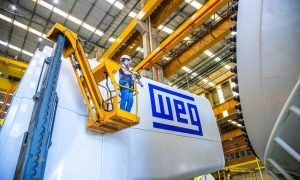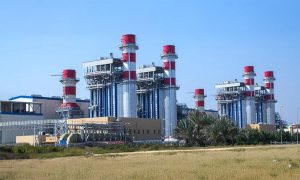Salaries surge in Gulf construction sector
News analysis: Surveys show an upturn in salaries in 2014, with Saudi Arabia the biggest driver of growth

Throughout 2014, residential prices in the region continued on an upward trend, sparked by a succession of announcements of high-profile megaprojects. In conjunction with this, the manufacturing, tourism and retail sectors continued to accelerate, creating a positive bubble in the construction and property industry, for job seekers and hiring managers alike.
Saudi Arabia has been the biggest driver of growth in the construction sector, with a number of pipeline projects coming on stream in 2014, continuing into this year. In addition, the Northern Emirates of the UAE have seen a surge in tourism, which has resulted in more construction activity there.
Meanwhile, Expo 2020 continues to provide sustained momentum in the UAE’s construction industry, continuing a trend that began in 2013, with transportation expansion in major airports. In 2015, growth is expected in the hospitality and real estate sectors.
Qatar has been another active market, while the likes of Oman and even Kuwait have seen large-scale infrastructure projects kickstarting the growth of their economies.
This increased activity throughout the GCC means the job market within the industry has also picked up. Earlier this year, international recruitment consultancy Hays Group released its Salary and Employment Report 2015, which highlighted the increased demand for construction professionals in the region, with project managers, construction managers and professionals with 12 to 15 years of experience in particularly high demand.
As a result, there has been a considerable surge in salary levels, with employers willing to pay for quality and job seekers feeling justified in asking for more. As part of the Hays report, construction, architecture, engineering, facilities and property professionals were surveyed about their salaries and their expectations for the coming year.
“2014 was a very positive year with salaries increasing and better benefits across the whole sector. This is particularly true for Architecture, Property and Construction where the majority received an additional 15%+ to their salary. Compared to 2013, last year saw a lot of movement in terms of internal promotions and new employment, which is the main contributing factor to the large surge in salaries. People who moved jobs on average increased their salary by over 15% compared to just 5% for those who stayed at the same business and received a pay increase as part of a company-wide review,” the report said.
These findings back up Big Project ME’s findings in its own salary survey, conducted at the end of 2014. The Construction Intelligence Report, released in January 2015, found that 75.1% of all respondents reported some movement in their salary, with 21% of all respondents reporting a salary rise of more than 10% over the course of 12 months.
In addition, the Hays report said that 50% of its survey respondents were expecting at least another 10% increase to their annual paycheque in 2015. In this group, property professionals are expecting the largest increase as a result of finding new employment (60% of those surveyed).
There was also a 50/50 split between those in engineering who saw a pay rise in 2014 and those who didn’t. However, this year more than 80% of respondents to the Hays survey said they were expecting to see some change to their monthly income.
Competitive market
What these figures and responses indicate is that the GCC’s construction sector is set to be one of the most competitive job markets in the region, with the UAE among the most competitive of all, reflecting the strength of its industry.
In the CiR, an overwhelming 60% of professionals surveyed picked it as being the best for wages, with Qatar coming in second at just 18.5%, followed by Saudi Arabia at 17.5%.
The remaining three nations were Kuwait (1.7%), Bahrain (1.2%) and Oman (1%), meaning that cumulatively the smaller GCC nations were picked by less than 4% of the professionals who completed the survey.
While the UAE may have the most competitive salaries, the perception is likely boosted by the number of international construction firms and related companies who have regional headquarters in Dubai or Abu Dhabi, meaning that many higherpaid jobs may have their base location in Dubai, with much of the actual work carried out in other markets.
The high ranking of the emirates may also be a reflection of the survey’s bias, with 62% of survey entrants coming from the UAE. The second-best represented markets in the survey were Saudi Arabia with 16% and Qatar with 10%, followed by Kuwait and Oman.
When it comes to bonuses and benefits, Qatar may have the edge, with 25% of respondents from Qatar reporting bonuses and benefits of $50,000+ in the past 12 months, far higher than the survey’s average of only 10.1%. By comparison, Saudi Arabia may not be the place to go for those hunting big bonuses, with only one person reporting bonus and benefits above $50k.
A question of loyalty
“When it comes to accepting a new job offer high salary and career development are the most important contributing factors for those in Facilities & Property. Whereas those in Construction and Architecture are more likely to seek challenging roles and generous benefits. When we saw there was dissatisfaction with their current employer the common denominating factor was lack of training offered as part of the benefits package,” the Hays report said.
Although employee turnover is typically higher in expat job environments, many professionals remain focused on their medium-term interests and look to maximise their opportunity for remittance and savings, rather than prioritising company loyalty or other long-term interests, the CiR found.
The good news for companies is that many employees are loyal, and when asked “How long do you expect to remain working at your current company?” the largest group of respondents (33.8%) said five years or more.
This indicates that there are rewards to be had for companies which invest in employee training programmes and up-skilling.

























